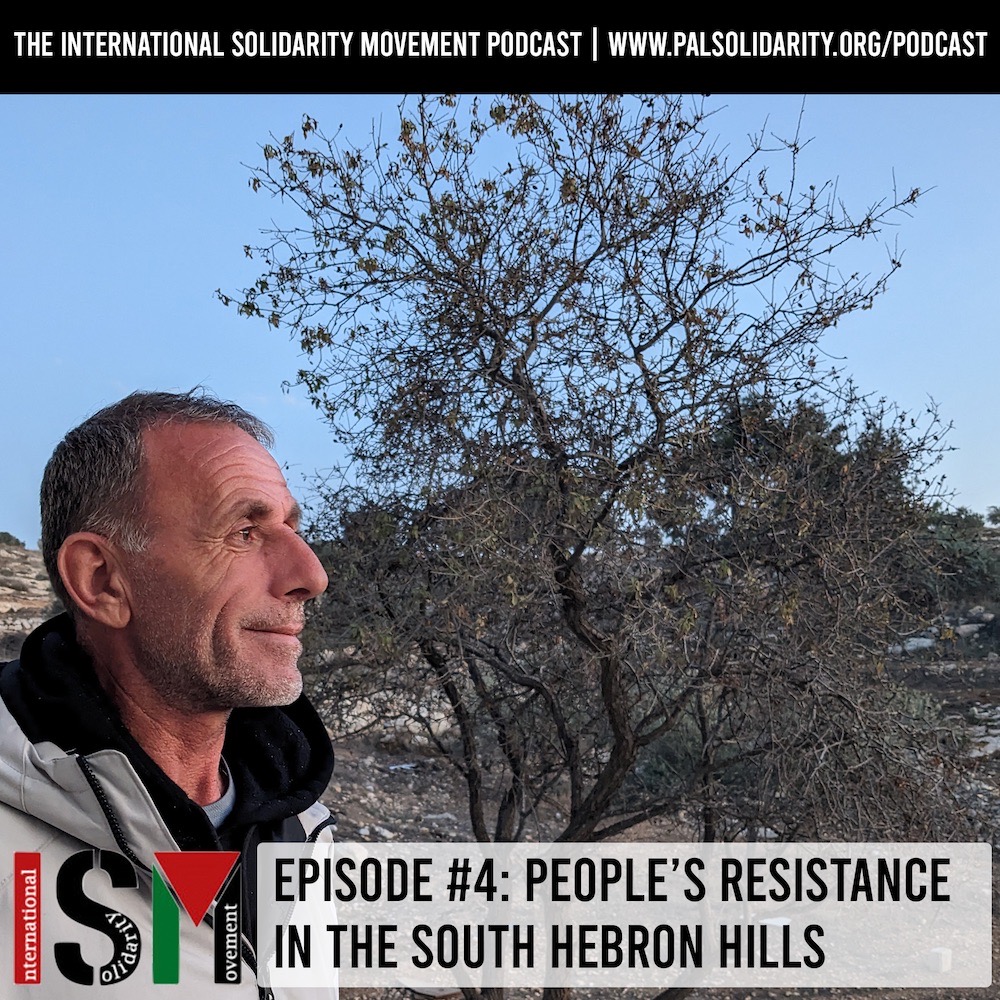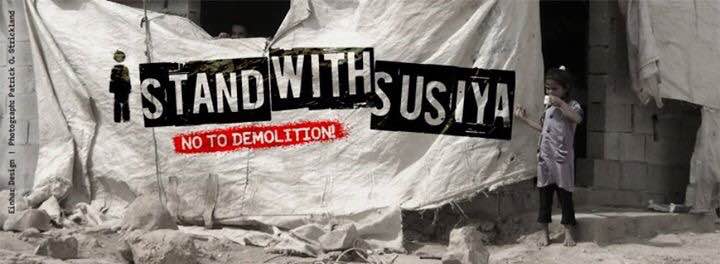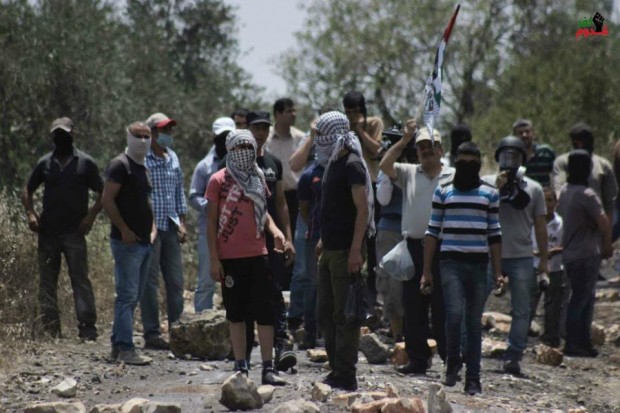Tag: Popular Struggle Coordination Committee
-
The International Solidarity Movement podcast episode four: People’s Resistance in the South Hebron Hills
In the fourth episode of the International Solidarity Movement podcast we speak to Hafez Hurreini, a veteran organiser from the village of At-Tuwani. Hafez is the father of Sami, who we interviewed in episode three. When we did our interview, Hafez had a metal pin in his arm after a brutal attack by settlers in…
-
PRESS RELEASE: SUSIYA – New Standards for US Foreign Policy on Israel?
22nd July, 2015 | Popular Struggle Coordination Committee | Ramallah, Occupied Palestine New Standards for US Foreign Policy on Israel? U.S. State Department Urges Israel to refrain from demolishing Palestinian village, Susiya in the West Bank. Fears a deterioration in standard of policy of indigenous displacement. In a US State Department press briefing, last week,…
-
Israeli forces use live ammunition in Kafr Qaddum on the first Friday of Ramadhan
21st June 2015 | International Solidarity Movement, Al Khalil Team | Kafr Qaddum, Occupied Palestine On the 19th of June in Kafr Qaddum, the first Friday demonstration of Ramadhan, Israeli border police shot two Palestinians with live ammunition. One Palestinian was shot twice in the leg and the other was shot once in the leg.…



